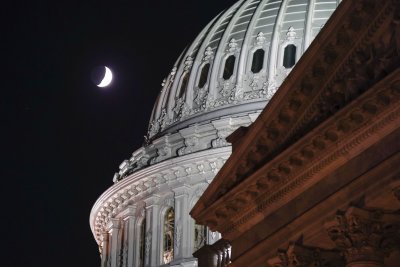Vice President Vance casts tie-breaking vote to quash war powers resolution

Jan. 14 (UPI) — Vice President JD Vance was needed Wednesday to vote in the Senate for the Republicans to quash a Democratic effort to rein in President Donald Trump‘s ability to launch military action against Venezuela.
Vance cast the deciding vote to break the 50-50 tie in a point of order to bar Senate Joint Resolution 98 from advancing to final consideration. The resolution appeared to have bipartisan promise, with five Republicans joining their Democratic colleagues in supporting the measure last week, but Sens. Josh Hawley, R-Mo., and Todd Young, R-Ind., changed their positions in the decisive motion following a pressure campaign from President Donald Trump.
“Senate Republicans continually fall in line behind Donald Trump, no matter how reckless, no matter how unconstitutional, no matter the potential cost of American lives,” Senate Minority Leader Chuck Schumer, D-N.Y., said during a press conference following the vote.
“What has happened tonight is a road map to another endless war because this Senate under Republican leadership failed to assert its legitimate and needed authority.”
The bill was introduced in early December by Sen. Tim Kaine, D-Va., amid a U.S. military buildup near Venezuela and as the Trump administration was attacking alleged drug-trafficking boats in the Caribbean, a move that heightened concerns about the president’s ability to attack the South American country without congressional approval.
As the bill was pending, Trump ordered a clandestine military operation earlier this month that resulted in the seizure of Venezuela’s authoritarian leader, Nicolas Maduro.
Despite Maduro’s ouster, concerns over further U.S. military action in Venezuela remain, along with uncertainty over the Trump administration’s plans for the country.
“The White House put a full-court press on unlike any I’ve sen in 13 years here to stop a public debate about war,” Kaine said. “If they were that righteous about the justness of this cause or the validity of their legal rationale, they wouldn’t be afraid of public debate.”
On Jan. 8, the resolution cleared an initial procedural vote 52-47, with five Republicans joining their Democratic colleagues.
Following the initial vote, Trump took to his Truth Social platform to call for the senators’ ouster.
“Republicans should be ashamed of the Senators that just voted with Democrats in attempting to take away our Powers to fight and defend the United States of America,” Trump said.
Along with Hawley and Young, the other Republicans were Sens. Susan Collins of Maine, Lisa Murkowski of Alaska and Rand Paul of Kentucky.
Trump said they “should never be elected to office again.”
“This Vote greatly hampers American Self-Defense and National Security, impeding the President’s Authority as Commander in Chief,” he added.
Young, in a statement Wednesday, said his change in position followed conversations with senior national security officials who assured him there are no troops on the ground in Venezuela and with Trump, who said if U.S. forces were needed in military operations in the South American nation the administration would ask Congress for authorization.
“I strongly believe any commitment of U.S. forces in Venezuela must be subject to debate and authorization in Congress,” he said.
Kaine, who has already filed several war powers resolutions, said the Democrats are going “to be filing a whole lot more.”
